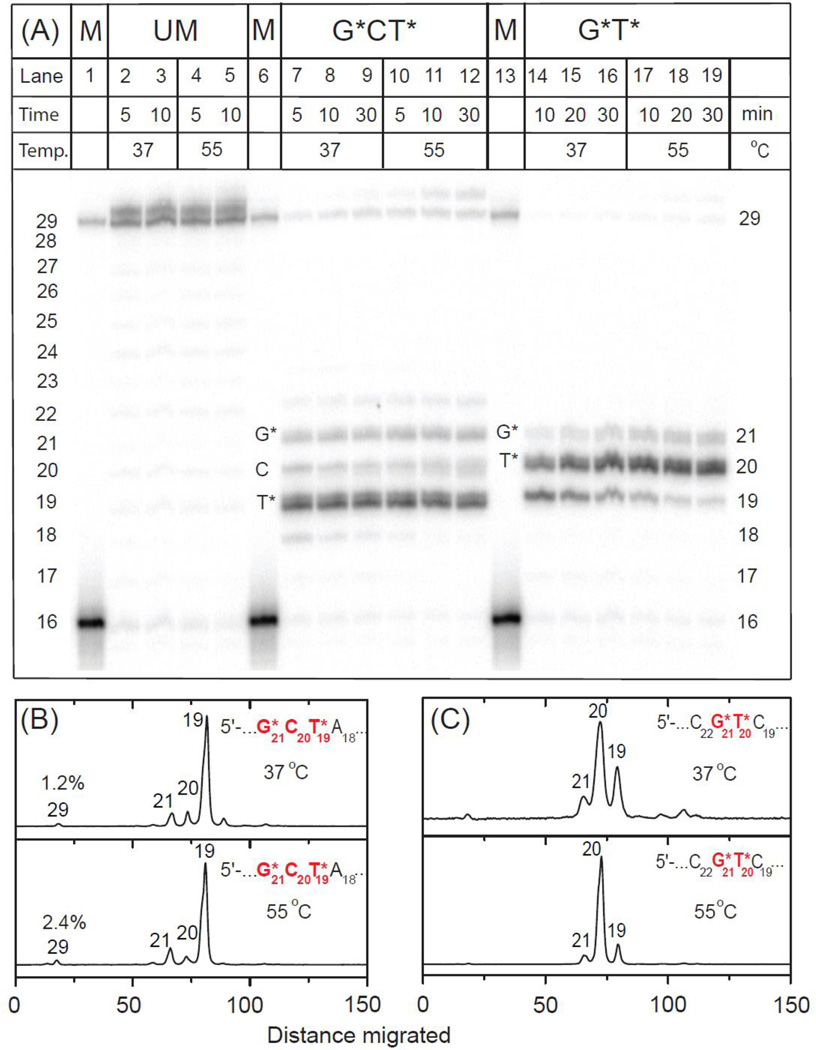Fig. 2.
Panel A: Running-start primer extension on 29-mer unmodified or modified templates with G*CT* and G*T* lesions catalyzed by BF polymerase. In the presence of all four dNTPs 5’-32P-labeled 16-mer primer (Fig. 1) was extended by BF polymerase (see text for experimental conditions). GCT unmodified template (UM): lanes 2 and 3, incubation times 5 and 10 min at 37 °C; lanes 4 and 5, incubation time 5 and 10 min at 55 °C (the results for the unmodified GT are not shown because they are indistinguishable from those shown for the unmodified GCT sequence). G*CT* template: lanes 7 – 9, incubation time 5, 10 and 30 min at 37 °C; lanes 10 – 12, incubation time 5, 10 and 30 min at 55 °C. G*T* template: lanes 14 – 16, incubation time 10, 20 and 30 min at 37 °C; lanes 17 – 19, incubation time 10, 20 and 30 min at 55 °C. The 29-mer would constitute a fully extended primer and its position together with the unextended 16-mer are shown in the lanes 1, 6 and 13. Panels B and C: Histograms of the denaturing gel autoradiograph (Panel A) for extension of 16-mer primers on the G*CT* (B) and G*T* (C) templates catalyzed by BF polymerase. In each case, the profiles are derived from the respective lanes for 30 min incubation time at 37 and 55 °C. Repeat experiments showed similar inefficient primer extension yields to those indicated at the 30 min time points (1.5±0.3% at 37 °C and 2.6±0.4% at 55 °C in the case of G*CT*, while the yields were negligible in the case of G*T* under the same conditions).

